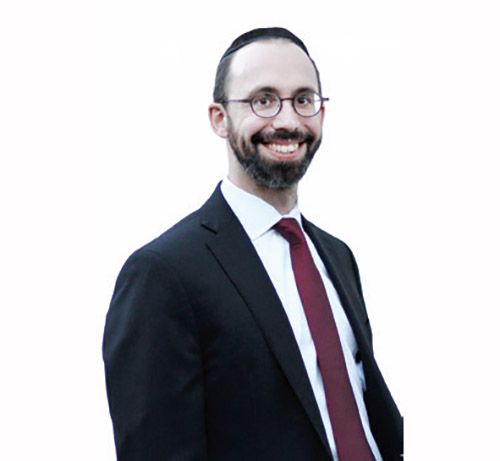
Many times when I drive from a meeting or an errand and head for a quick stop at the grocery store, I find myself pulling up in front of my own house instead. I seem to have an automatic “home” setting in my brain, unless I really focus.
The midrash at the start of Parshas Bechukosai, which discusses following Hashem’s ways, brings a similar idea regarding Dovid Hamelech: “I considered my ways and returned my feet to your testimonies” (Tehillim 119:59). The Midrash explains that Dovid recognized that while he planned his days with a full agenda, his feet naturally took him to his true “home setting”—the beis knesses and beis midrash.
But was this really praise of Dovid Hamelech? Dovid was the king and had important meetings and matters of state to take care of for the welfare of the entire Jewish nation. Was it truly praiseworthy when he neglected his national role, albeit for studying Torah?
The Sfas Emes explains the midrash with an alternative twist. Dovid did not literally find himself in the beis knesses and beis midrash instead of performing his important duties for the Jewish nation. Rather, the midrash states the context in which Dovid related to all events that occurred in his day. Dovid was the king, with a busy schedule, but not everything turned out the way he planned. Dovid realized that Hashem was really planning everything. “Beis knesses” means a place of gathering. Dovid was saying he gathered all events in his life to be considered with the recognition that Hashem was running the show. “Beis midrash”—place of learning—is understood as seeing each day as a learning experience.
Now we can look at our own lives. Many of us have long “to-do” lists that occupy our day. We may get frustrated that this is how we need to spend our time and wonder why Hashem isn’t giving us more opportunities for davening and learning Torah! The midrash is teaching us that Hashem is sending us to the places where He wants us to be and giving us our tasks. We think it’s our own doing, but really it’s what the Almighty has put in front of us. We’re not in charge. There may indeed be a special purpose for us to be at the supermarket, the bank or the doctor’s office.
Rav Shimshon Pincus says sometimes a Jew finds himself in places far from any Jewish people in order to make a kiddush Hashem and follow the mitzvos. A friend of mine told me he once was deep in China, with no Jew for hundreds of miles. His fellow travelers were served monkey for dinner. He had to explain that he could not share their food experience and why! We may be in Alaska, Alabama or Tahiti; wherever we are, Hashem has a plan for us there. Truly realizing this will fill our day with purpose and enthusiasm.
Recently, I wasn’t feeling well and went to a later Shacharis. I was worried about my late start on a busy day. As I was taking off my tefillin, I recognized the name on the tefillin bag next to me. We had traded emails several times during the year to work on a joint project, but never met. Now we were standing face to face and could talk about completing the project! I now realized why Hashem had sent me to daven at that minyan, and it was worth the whole change in my schedule.
Our parsha’s introduction, Im bechukosai teleichu, is seen differently by Rashi than the Midrash. Rashi explains that going in Hashem’s ways refers specifically to immersing oneself in diligent Torah study. This interpretation can be hard on the working man! Rising early, Monday to Friday, we toil in our jobs and many have little time to immerse in Torah.
The Sfas Emes synthesizes both Rashi’s explanation and the Midrash.
When one toils and struggles to understand a portion of Torah—and still doesn’t understand—one needs to surrender his mind to Hashem’s word and follow the halacha regardless. The same is true with all our daily experiences. Whenever surprises happen, we need to surrender our plan to His plan and deal with it. When we do that, we are tapping into a component of toiling in Torah, while not physically learning Torah. We do this by recognizing that wherever we are, Hashem always has the best plan for us.
By Rabbi Baruch Bodenheim
Rabbi Baruch Bodenheim is the associate rosh yeshiva of Passaic Torah Institute (PTI)/Yeshiva Ner Boruch. PTI has attracted people from all over northern New Jersey, including Teaneck, Bergenfield, Paramus, Rockaway and Fair Lawn. He initiated and continues to lead a multi-level Gemara learning program. Recently he has spread out beyond PTI to begin a weekly beis midrash program with in-depth chavrusa learning in Livingston and Springfield. This year he joined Heichal Hatorah in Teaneck as a Gemara iyun rebbe. His email is rb@ptiweb.org.










